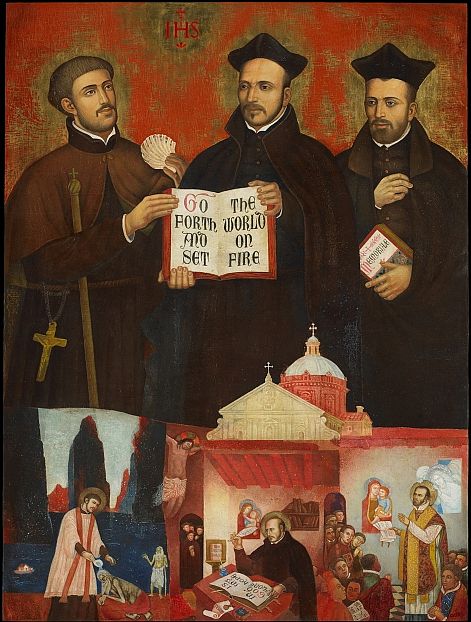445. Band of Brothers: the Jesuits
Ignatius of Loyola’s movement begins modestly, but winds up having a global impact on education and philosophy. We also discuss casuistry and the Jesuit concept of "mental reservation."
Themes:
• J.W. Padberg et al. (eds), Ignatius of Loyola: Letters and Instructions (St. Louis: 1996).
---
• M. Feingold (ed.), Jesuit Science and the Republic of Letters (Cambridge MA: 2003).
• M. Friedrich, The Jesuits: a History (Princeton: 2022).
• F.C. Hsia, Sojourners in a Strange Land: Jesuits and their Scientific Missions in Late Imperial China (Chicago: 2009).
• A. Jonsen and S. Toulmin, The Abuse of Casuistry: A History of Moral Reasoning (Berkeley: 1988).
• J.M. Lattis, Between Copernicus and Galileo: Christoph Clavius and the Collapse of Ptolemaic Cosmology (Chicago: 1994).
• J.W. O’Malley, The First Jesuits (Cambridge MA: 1993).
• J.W. O’Malley et al. (eds), The Jesuits: Cultures, Sciences, and the Arts, 1540-1773 (Toronto: 1999).
• J.W. O’Malley, Saints or Devils Incarnate? Studies in Jesuit History (Leiden: 2013).
• A.I. Prieto, Missionary Scientists: Jesuit Science in Spanish South America, 1570-1810 (Nashville: 2011).
• J.P. Sommerville, “The ‘New Art of Lying’: Equivocation, Mental Reservation, and Casuistry,” in E. Leites (ed.), Conscience and Casuistry in Early Modern Europe (Cambridge: 1988), 159-84
• T. Worcester (ed.), The Cambridge Companion to the Jesuits (Cambridge: 2008).
• I.G. Županov (ed.), The Oxford Handbook of the Jesuits (Oxford: 2019).





Comments
Jesuits and Galileo
Your episodes are always fascinating and remarkably good--and I always enjoy them, but while Galileo most likely learned from Jesuit books (as his notebooks seem to indicate) he never studied under them in. He certainly depended on their support for his initial success (the scholars at the Collegio Romano gave him recognition early on and he was feted there) and leaned on them to a certain extent later but Galileo could never understand that scholars in an organization did not have the freedom to promote their personal scientific opinions too obviously. His turn against them was unfortunate considering their significance in Catholic Europe, and reveal more about his own limitations than theirs. .
In reply to Jesuits and Galileo by Paschal Scotti
Galileo and the Jesuits
Oh yes, thanks for catching that - he used lecture notes from Jesuit instructors, I guess he didn't actually attend the lectures himself. (That seems like a rather minimal difference though, just the difference between reading something and hearing it outloud - probably reading it would be more impactful, if anything.) I don't have a firm view of my own on this, of course, I was just alluding to the interpretation of W.A. Wallace e.g. in Galileo’s Jesuit Connections and Their Influence on His Science,” in Feingold, Jesuit Science. That's why I said "it has also been argued that..."
But I'll fix the sentence for the book version, thanks again!
Conimbricenses spotlight
Initially you had an episode dedicated to the Conimbricenses but in the recent revised list of topics this was removed.
With that being the case, in which episode will you dedicate time to the Conimbricenses instead?
In reply to Conimbricenses spotlight by dukeofethereal
Conimbricenses
They'll be covered in the introductory episode on Spanish scholasticism, number 448. I may actually record that today in fact!
We're all Jesuits now!
Do you think that when politicians tell lies, they are saying to themselves,"Mental reservation, 'I did actually do it.'"
Perhaps we should not judge them too harshly, & revise our opinions of them.
Add new comment